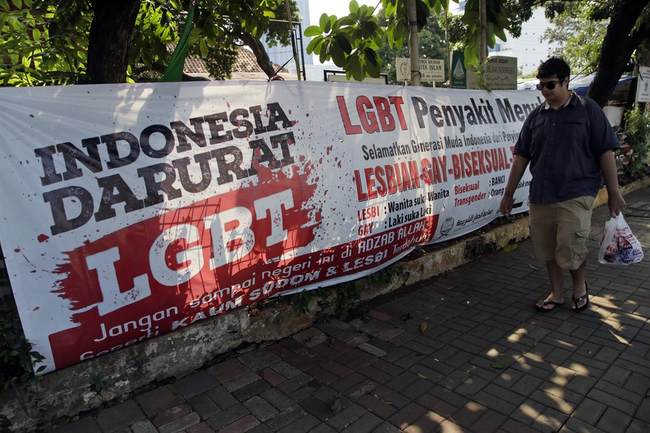
I have been a critic of climate change alarmism for years, but I am seriously rethinking my position.
The inundation of our shores, the drying up of our farmlands, and the mass extinction of humanity–all things I have been told threaten us–didn’t convince me of the need to completely remake our economy.
But now that I am being told that climate change is making life more difficult for transgender Indonesian sex workers I am truly alarmed.
Unfortunately, it’s real. https://t.co/X0lWEdRkTX
(And yes, the media is garbage.)
— Utah Conservative (@coninutah) April 4, 2024
If you think about it, being an Indonesian sex worker is probably not a particularly safe line of work. I have no idea if being transgender in that profession makes it better or worse, but it certainly makes you more important on the intersectional ladder of oppression.
Joya Patiha, a 43-year-old Indonesian transgender woman, first started to notice that changing weather patterns in
Joya Patiha, a 43-year-old Indonesian transgender woman, first started to notice that changing weather patterns in the mountain-ringed city of Bandung were affecting her income as a sex worker a decade ago.
The rainy season was lasting longer across the West Java province, winds were stronger and in some particularly bad years Patiha lost up to 80% of her earnings.
Trans women like Patiha are among the most affected by extreme weather linked to climate change, as well as suffering disproportionately when disasters strike.
“No one is coming out during the longer rainy season,” said Patiha. “It is very hard to make money during that unpredictable weather.”
Indonesia is particularly vulnerable to the effects of climate change, and trans women, who tend to face more stigma and marginalisation than trans men or other LGBTQ+ Indonesians, are also among those hardest hit by extreme weather.
WTF?
Seriously. WTF?
I don’t know about you, but of all the ways to measure the significance of climate change, the earnings of aging Indonesian sex workers are among the strangest. It is like measuring the size of asteroids in units of dinosaurs and Empire State Buildings, which for some reason we also do.
Not to put too fine a point on it, but is it even conceivable that some other variable is at work here? Are there records of climate variability over time? What is the evidence that natural climate cycles aren’t at work here? How big is the change? Isn’t it usually hot and rainy in Indonesia?
And for God’s sake, who thought of doing this story? Is this the most pressing issue in Indonesia? In Asia? In the world?
“Those outside the binary category are often labelled with the category ‘deviant’, (and) associated with the causes of environmental problems and disasters,” said Darmawan, who has researched how climate change affects trans Indonesians.
These kinds of attitudes have seen LGBTQ+ people excluded from plans meant to support Indonesians dealing with the effects of climate change, he said.
The Indonesian government has a five-year plan setting out its development objectives and how it will manage the impacts of climate change and although this includes provisions for vulnerable groups, trans people are not listed among them.
“Women, the elderly, and people with disabilities are mentioned, but there is no provision for sexual and gender minorities,” Darmawan said. The lack of government recognition of their precarity means trans people have few social safety nets, he added.
Don’t get me wrong. I have no desire to see Indonesian transgender sex workers suffer, but perhaps rather than dealing with whatever problems they may have by upending the world economy, the people who lay awake at night thinking about this might find a simpler and cheaper way to deal with this issue.
Personally I would think that the impending famine in Sudan is a more pressing issue. Just sayin’.
Some trans women are seeking to find their own solutions. To raise awareness about climate change, Sanggar Seroja puts on movie nights and fashion shows, and hosts discussions with other queer communities.
The group also surveyed 80 members of the trans community in Jakarta to find out how climate change affected incomes, frequency of illness, and changes in spending from 2021 to 2022.
Nearly 93% of respondents saw decreased income during the rainy season, and 72% had increased expenses.
Were streetwalkers not seeing income decreasing during the rainy season before CO2 started climbing?
My biggest fear after reading this story is that Joe Biden has found another cause; not only can he continue down the path of destroying the economy, he can expand his program to fly migrants from abroad into the US in order to put them up at taxpayer expense.
Hopefully someplace with a more conducive climate for transgender streetwalkers.
